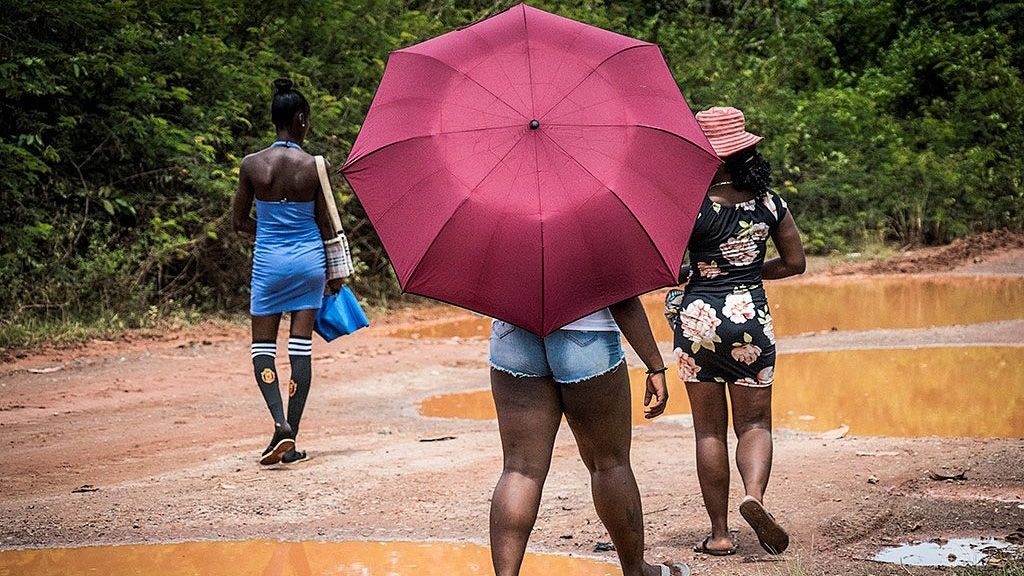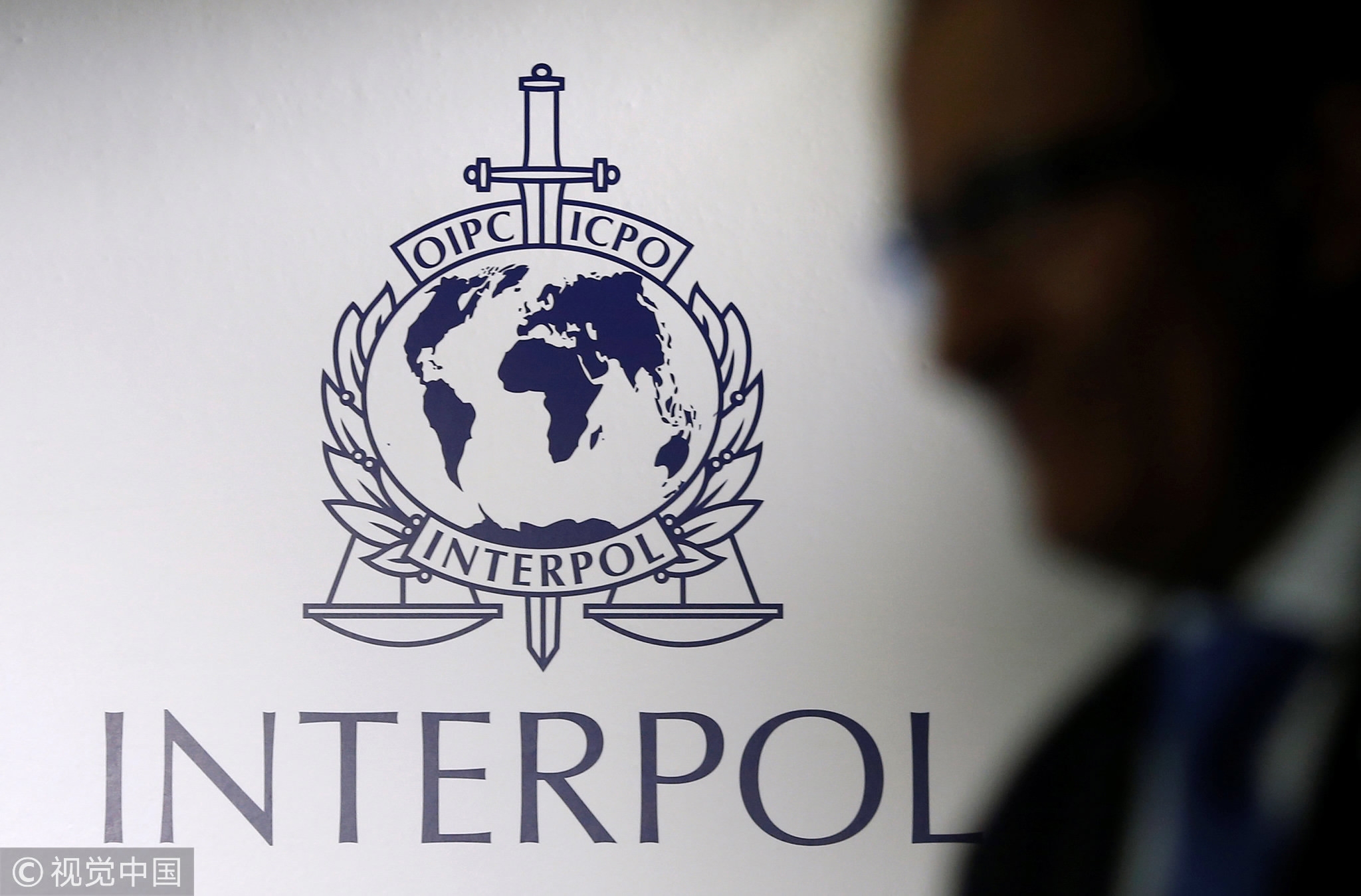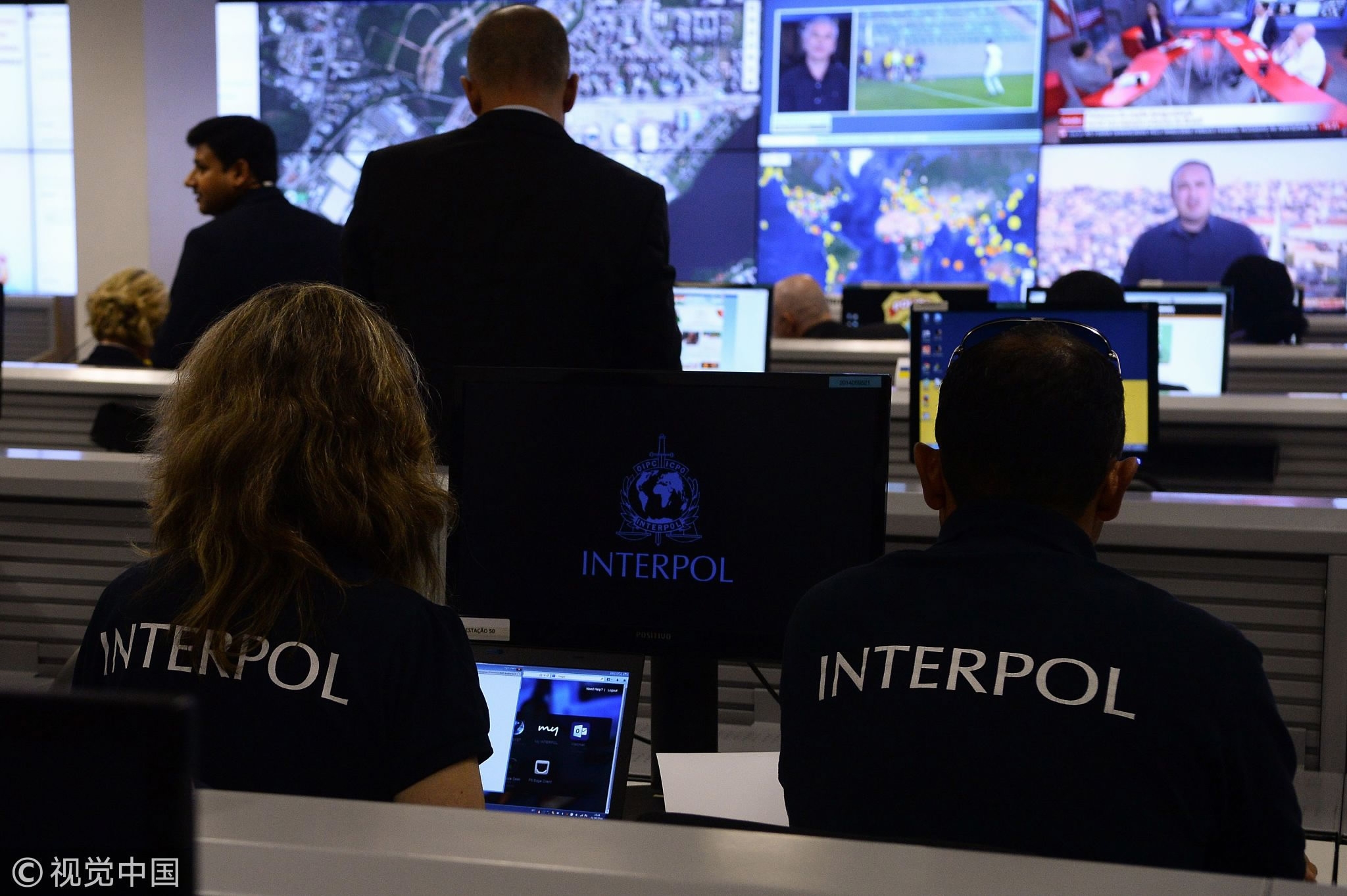
World
14:01, 01-May-2018
350 freed as Interpol nets human traffickers in Latin America
By Sim Sim Wissgott

A major crackdown on human traffickers in Latin America and the Caribbean led to 22 arrests and freed some 350 people in April, Interpol announced on Monday.
Thirteen countries and some 500 police officers took part in Operation Libertad on April 3-9, the international police organization said in a statement.
In all, “nearly 350 potential victims of sexual exploitation and forced labor have been rescued,” it said. This included men, women and children, who were found working in night clubs, factories, mines, farms and open-air markets.

A man passes an Interpol logo at the new premises of Interpol's Global Complex for Innovation in Singapore, September 30, 2014. /VCG Photo
A man passes an Interpol logo at the new premises of Interpol's Global Complex for Innovation in Singapore, September 30, 2014. /VCG Photo
“Operations like this show the power of Interpol providing a platform for the 13 participating countries, but what sits behind these numbers is the human story,” Interpol’s executive director of police services, Tim Morris, said in the statement.
In Guyana, young women were found working as prostitutes near gold mines in extremely remote locations, making it almost impossible for them to escape.
In Saint Vincent and the Grenadines, Asian factory workers had their passports taken from them and were never paid, so that they were entirely dependent on their bosses.
Victims of human trafficking often come from impoverished backgrounds, making them more vulnerable to promises of high pay and good jobs, Interpol officials pointed out.
“What traffickers don’t advertise are the working conditions their victims will be subject to once their final destination is reached,” said the coordinator of the agency’s trafficking in human beings unit, Cem Kolcu. In the most recent operation, some women were found working “out of spaces no bigger than coffins,” he noted.

Interpol officers work in Brasilia, on August 1, 2016 ahead of the Olympic and Paralympic Games in Rio de Janeiro, Brazil. /VCG Photo
Interpol officers work in Brasilia, on August 1, 2016 ahead of the Olympic and Paralympic Games in Rio de Janeiro, Brazil. /VCG Photo
Victims often come from neighboring countries but also much farther afield. “We have some cases where Venezuelan and Chinese victims are subjected to human trafficking in the region,” Kolcu said.
“Traffickers take advantage of their vulnerability and manipulate them, and make them believe that this is the best chance for them and… that they will be free soon after they have paid their debt to these people.”
In fact, this is just the beginning of a vicious cycle: "In many cases, these traffickers are selling these victims to other traffickers or to another criminal group to be exploited,” Kolcu said.
As part of Operation Libertad, police conducted raids throughout the region, and seized computer equipment, mobile phones and cash.
The coordinated effort was carried out in Brazil, Venezuela, Belize, as well as Aruba, Jamaica, Barbados, Guyana, Curacao, Saint Lucia, Antigua and Barbuda, Trinidad and Tobago, Turks and Caicos Islands, and Saint Vincent and the Grenadines.
According to a report last September by the International Labor Organization (ILO) and the Walk Free Foundation, a human rights group, some 25 million people around the world were victims of forced labor in 2016.
(Top picture: This undated photo obtained April 30, 2018 courtesy of Interpol shows young women working as prostitutes near remote gold mines in Guyana. /VCG Photo)

SITEMAP
Copyright © 2018 CGTN. Beijing ICP prepared NO.16065310-3
Copyright © 2018 CGTN. Beijing ICP prepared NO.16065310-3